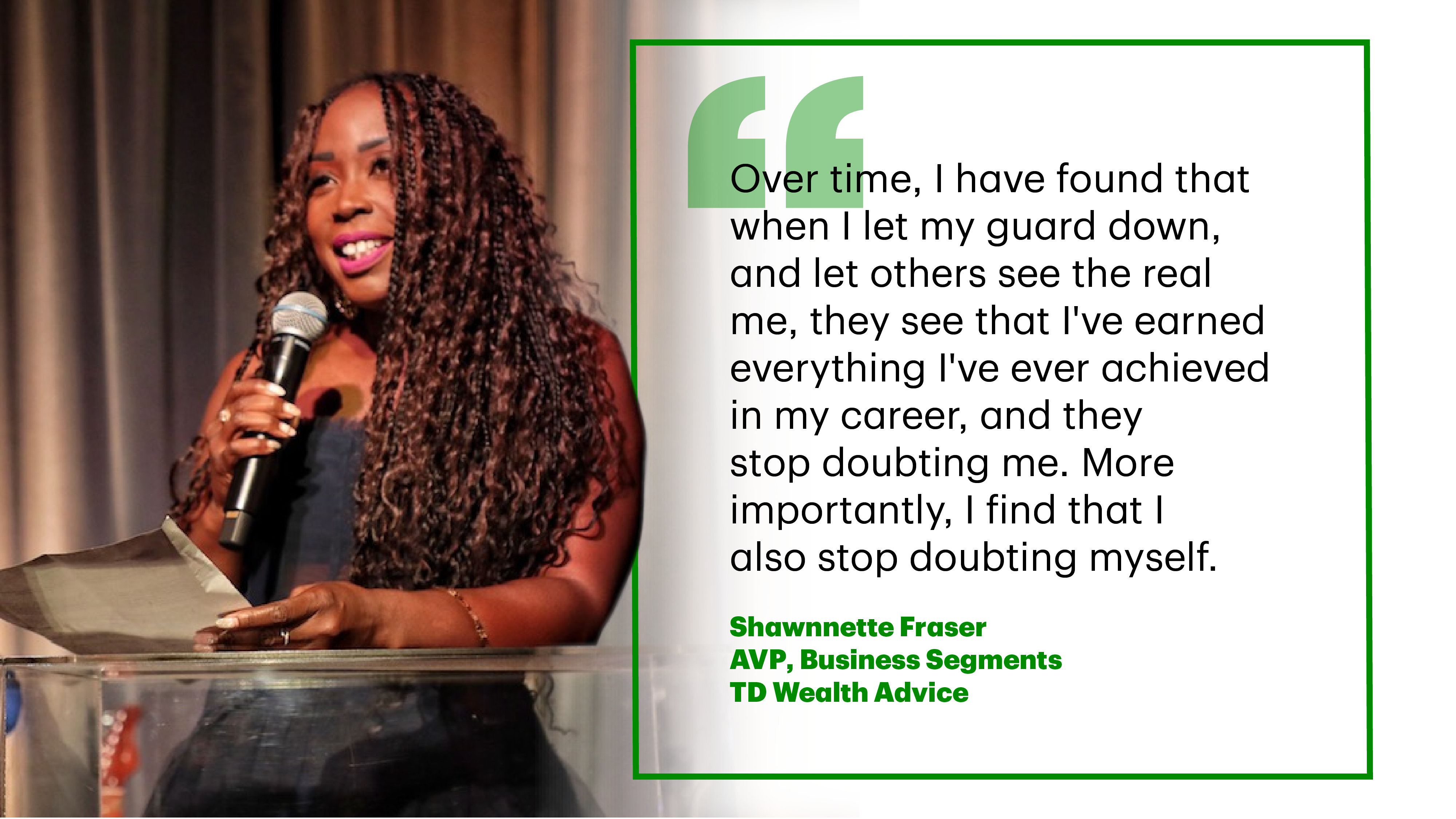"We figured you were only made an executive because they needed to promote a Black female, but now that we've heard your background and worked with you, we know you're actually qualified for this job."
That's a real statement a co-worker actually said to me.
Sadly, as a Black female executive, I've heard things like this before. Whenever I would get promoted, there would be whispers in the office, people questioning whether I had actually earned my new job, or if I'd been put in the new position to fill some kind of quota; a "diversity hire" and nothing more.
Like many people, I suffer from imposter syndrome; doubting my own accomplishments and stressing needlessly that someone might expose me as a fraud. Unfortunately, being a Black female executive only heightened those feelings.
As I once tried to describe it to a co-worker: Imagine you already suffer from imposter syndrome, constantly worrying that you're not good enough. Then, you start to hear comments from your colleagues that make you think they believe you only got your job because you're a "diversity hire."

Imposter syndrome
According to the Centre for Addiction and Mental Health (CAMH), imposter syndrome is "a psychological pattern in which people doubt their accomplishments and have a persistent, often internalized fear of being exposed as a 'fraud'." This was how I felt when I heard these kinds of comments.
While imposter syndrome is not an uncommon phenomenon – it can affect people from all ethnicities, ages and walks of life experience – in my personal experience, I have found that these feelings are particularly prevalent in women and individuals from diverse backgrounds.
For me, the ingrained biases of others combined with microaggressions from those around me are what really compounded my feelings of being an imposter.
While more organizations, including TD, are taking positive and concrete steps to include a greater number of individuals from diverse backgrounds in leadership and executive roles, it's still very important to recognize that these feelings can exist side-by-side with these promotions with the potential to negatively impact the mental health of our colleagues. That's why it's so important that organizations create inclusive environments where people not only know they are valued but everyone also understands everyone's worth.
Being an immigrant to Canada exacerbated my imposter syndrome. I always felt I had to work twice as hard to earn the same opportunities as my colleagues. And when I heard hurtful comments from my colleagues, it was like my brain telling me that was proof that I was underqualified and not good enough for my job. Comments that suggested I only got something because TD needed to fill a diversity quota significantly eroded my confidence.
Last year, I decided to share my thoughts with my incredible Black peer group here at TD. One colleague encouraged me to get an executive coach. I was blessed to be working for a people leader who supported this and worked to connect me with an incredible coach. She taught me how to manage these thoughts and more importantly how to effectively market myself.
During Black History Month last year, TD hired Zee Clarke, an incredible speaker and racial healer, to do a workshop for our network on imposter syndrome.
As a Black woman in a leadership role, it was during that workshop that I learned I wasn't alone and that there were tools, people, resources and exercises I can leverage to overcome imposter syndrome and sustain a level of self-confidence.
Diversity & Inclusion at TD
At TD, diversity and inclusion are critical components of our corporate culture, and so many of my colleagues are visible minorities. And despite progress in the boardroom to increase the number of diverse voices that historically have been absent, women and people from minority backgrounds still don’t have equal representation.
As we continue our commitment to have these important, albeit sometimes uncomfortable conversations, TD is also working to create safe spaces where colleagues can feel at ease to discuss their feelings, including imposter syndrome feelings, and share resources of support .
It's only when we acknowledge our feelings that we can start to unravel those core beliefs that may be holding us back. Personally, I try to remind myself to separate fact from fiction. Instead of doubting my accomplishments, I try to express gratitude for my life experiences and work achievements and channel those thoughts into healthy and positive productivity and growth.
Over time, I have found that when I let my guard down, and let others see the real me, they see that I've earned everything I've ever achieved in my career, and they stop doubting me. More importantly, I find that I also stop doubting myself.
I'm still a work in progress, but I made a conscious decision to be mindful of when feelings of imposter syndrome creep up to immediately employ the tools I have learned. I have learned to reframe the message.
Thankfully, at TD, these kinds of microaggressions are becoming less and less common all the time.

